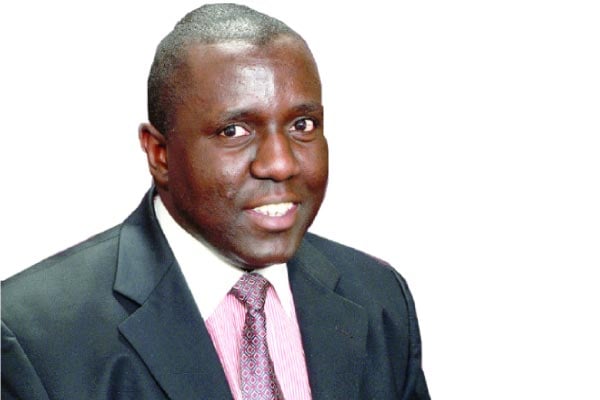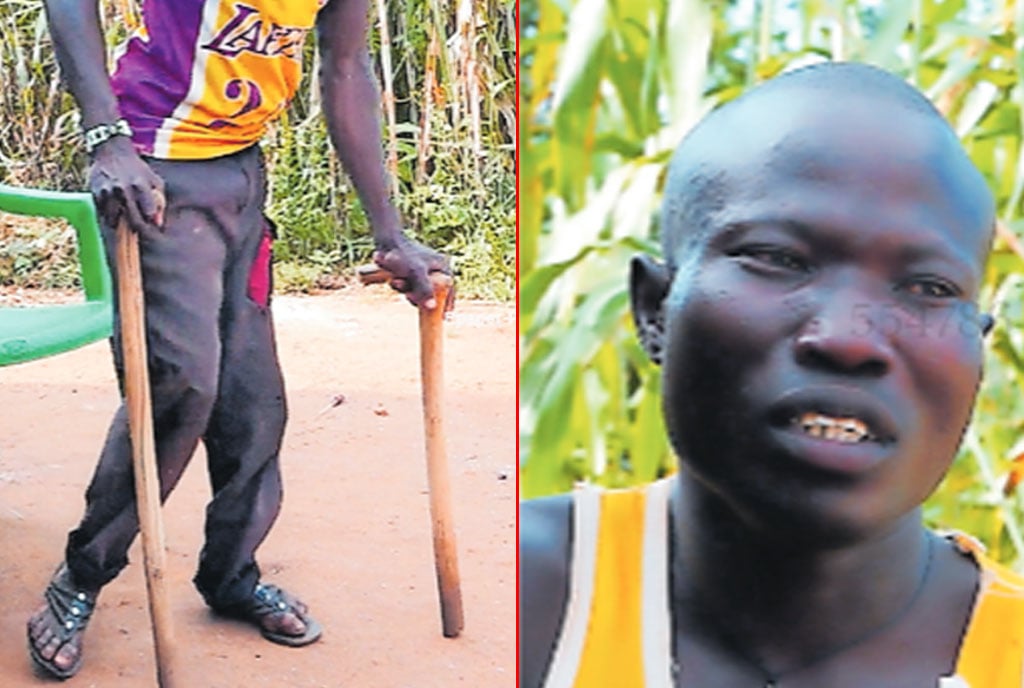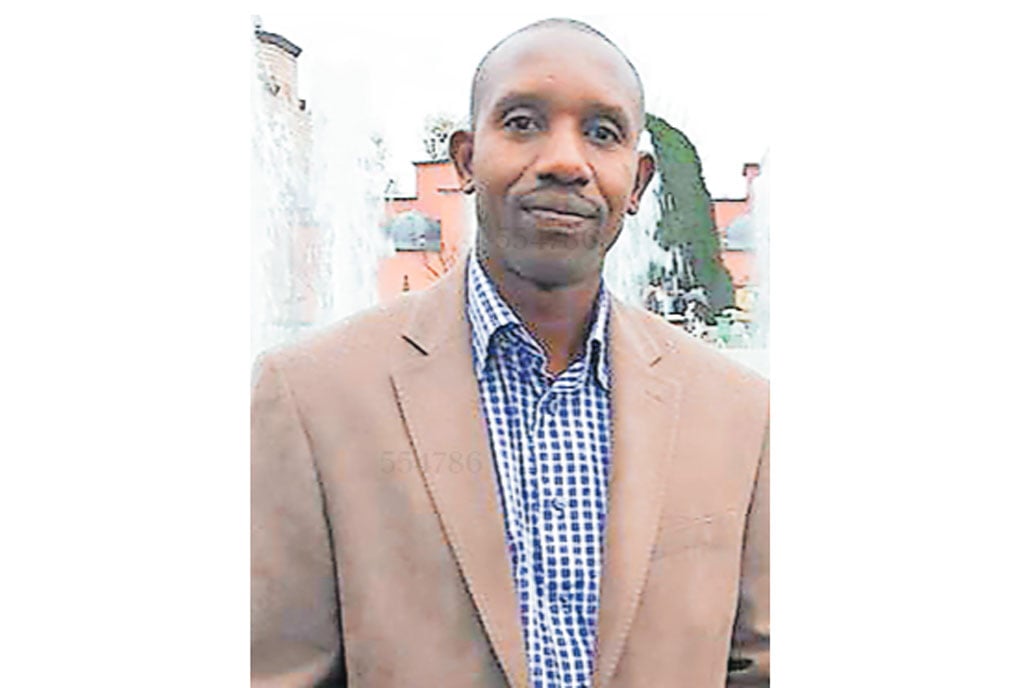
Residents of Kampala line up to cast their votes during the 2021 General Election. PHOTO/ FILE
On Monday, the leader of the National Unity Platform, Mr Robert Kyagulanyi Ssentamu, poured cold water on plans by the former Leader of the Opposition in Parliament (LoP), Mr Mathias Mpuuga, to introduce private members’ Bills aimed at causing electoral and constitutional reforms ahead of the 2026 General Election.
The legislator for Nyendo-Mukungwe Division in Masaka City wrote to Speaker Anita Among on October 4 seeking to be allocated time to present his proposals to cause amendments to the Constitution and several Acts of Parliament that touch on, among others, the presidential and parliamentary elections, the Electoral Commission and the referendum and other provisions.“This is to request space on the Order Paper for their [Bills] consideration by the House,” Mr Mpuuga wrote in the letter to the Speaker.
The long and short of what he is proposing include, among others, the restoration of presidential term limits; replacing of the Office of the Vice President with a Deputy President nominated by a presidential candidate; barring elected MPs from taking up ministerial appointments unless they have resigned from Parliament; creation of both a lower (national assembly) and upper house (senate); reduction of the size of Parliament and increasing the number of commissioners of the Electoral Commission (EC).
Mr Kyagulanyi, while addressing the media at the party headquarters in Makerere Kavule in Kampala, suggested that Mr Mpuuga was doing two things: First, he was only regurgitating proposals that have always been on the discussion table. The second was that he was placing emphasis on the inconsequential.“Term limits are not Uganda’s problem. If Mpuuga was bringing something new, why didn’t he come up with an age limit and not term limits? Let us assume that terms limits are resorted to, this simply means that Museveni will have the right to contest again. As NUP, we want age limits and not term limits,” Mr Kyagulanyi said.
Civil society, donors and political parties have for quite a while now been calling for improvements to the electoral frameworks for future elections. The proposed reforms have been piling up with every election cycle.
The list is actually so long that Mr Mpuuga, it can be said, scratched only a bit of it. He, for example, did not touch on the proposals to, among other things, waive the requirement for civil servants to resign before nominations; scrapping elections for special interest groups; introduction of five-year bans from elective politics for those found guilty of offences such as bribery.But even if we were to agree with Mr Kyagulanyi that there is nothing new about what Mr Mpuuga is proposing, does that render his proposal irrelevant? Or would they not help wash the mess off our electoral processes if they sailed through?That will perhaps be a discussion for another day as it was not possible to establish from Mr Kyagulanyi why he seemed to think Mr Mpuuga’s proposals irrelevant or inconsequential. Or both.
Mr Joel Ssenyonyi, the LoP, who attended the same press conference had by press time not responded to queries regarding the same matter.It should, however, be noted that Mr Kyagulanyi emphasised the need to push through reforms that would lead to changes in the manner in which the Electoral Commission (EC) is constituted.“The biggest problem that Uganda has had for a while now is Museveni appointing the Electoral Commission. If the Commission was not appointed by Museveni, elections in the country would be free and fair,” Mr Kyagulanyi said.
Formation of the EC is provided for under Chapter 5 of the 1995 Constitution. Article 60 (1) provides that, “There shall be an Electoral Commission which shall consist of a chairperson, a deputy chairperson and five other members appointed by the President with the approval of Parliament”.Civil society, political parties and the donor community have for quite a while now been calling for a constitutional amendment that will lead to changes in the manner in which the EC is formed. The argument has always been that a sitting President who is also bent on contesting elections should not be appointing an EC that is to adjudicate in a contest in which he is a candidate or one in which he has an interest.

Accountability. Left-right: Electoral Commission Secretary Sam Rwakoojo, Justice Simon Byabakama and Deputy Attorney General Jackson Kafuuzi appear before the Legal and Parliamentary Affairs Committee on February 25, 2020. PHOTO BY DAVID LUBOWA
Negative image
The thinking that the “Commission” is perhaps the biggest obstacle to the holding of free and fair elections has been around for quite a while now.We may not be able to tell with accuracy when it started, but we shall do well to remember that the Commission was in November 2015 accused by Dr Kizza Besigye, who was the presidential candidate of the Opposition Forum for Democratic Change (FDC) of “serving Mr Museveni’s interests”.
“EC is serving as a walking stick of Mr Museveni and his regime…I have nothing against the gentlemen occupying offices of EC but we have a problem with the institution. We want an independent Electoral Commission, not just in name, but in every aspect,” Dr Besigye declared.Justice Simon Byabakama, the chairperson of the Commission, told Sunday Monitor in a recent interview that the Commission has been trying to deal with negative perceptions about it.
“Some of the stakeholders have an unnecessary negative perception of the Commission. However much we endeavour to be transparent, they remain suspicious of our conduct and activities,” he said.
He says matters are not helped by the fact that some of their accusers are not stating in specific terms what their grumble with the Commission is all about.
“I expect any political party or individual that has problems with the Commission to approach us and say, ‘Electoral Commission we have a problem with you’. We expect them to come forward if there are matters that pertain to the overall work or execution of the mandate of the Commission. It is not for us to go and say, ‘Do you have a problem with us? Can you come and we talk?’” Justice Byabakama says.Being forthright with the Commission, he believes, just might help it to improve.“One can only improve if there are people assessing them and pointing out the areas on which they should be working in order to improve. That is why I am saying let them come and tell us,” he says.
However, if the comments made by Mr Kyagulanyi and Dr Besigye before him, are anything to go by, suspicions that the Commission is biased and favours Mr Museveni and the ruling National Resistance Movement (NRM) can only be cured by changing how the Commission is constituted.Calls to tweak how the EC is constituted have been around for quite a while now. The recommendation has always been that the EC should be reconstituted through an inclusive and transparent process in which the public and civil society, and not the government, should play a leading role.
The suggestion has been that Uganda emulates Kenya where the Independent Electoral Boundaries Commission (IEBC) organises and manages elections.Under the IEBC Act, the president is required to within 14 days of a vacancy arising in the commission, appoint a selection panel comprising a chairperson and eight members drawn from distinguished professionals in the private sector or public service with relevant expertise.
The panel is required within seven days of its convening to invite applications and publish the names of all applicants. It then shortlists and conducts interviews. The panel then selects three persons qualified to be appointed as chairperson and 13 persons qualified to be appointed as members of the commission and forwards them to the president whose selection must be approved by parliament. Such an elaborate process, the proposers say, will strengthen the EC’s integrity.
Dr Chris Baryomunsi, the minister for Information and Communication Technologies and National Guidance scoffs at those who are calling on Uganda to emulate Kenya, suggesting that it might not be the appropriate point to use for benchmarking.“Who tells you that Kenya is an exemplary country in terms of democracy?” Dr Baryomunsi asks.
EC as a scapegoat?
NRM has been described by most of its supporters as a mass party. A majority of Ugandans, some of them say, approve of the NRM, a shade of opinion that they say is reflected in Parliament where it has a majority of MPs.One, however, wonders why this mass party would be so reluctant to make amendments that would help sanitise the electoral processes. Or could the mass party be much weaker than people think?Dr Baryomunsi leaps to the party’s defence saying Uganda has “adequate infrastructure to carry out free and fair elections”.
The problem is that different actors out there have different views and ideas about what constitutes a free and fair election.Mr Livingston Sewanyana, the executive director of the Foundation Human Rights Initiative (FHRI), says that an election can only be deemed to have been free and fair if it is conducted transparently.“Such an election would require election observers, digitalised technology and civic education,” Mr Sewanyana says.

A man votes in Uganda during the 2021 elections. PHOTO/FILE
Would tweak work?
The question would now be whether an EC constituted in the manner that is being proposed would be able to deliver an election such as the one Mr Sewanyana is talking about or one with an outcome that the Opposition would find acceptable.Dr Baryomunsi thinks that the Opposition will always cry foul.
Mr Kyagulanyi and Dr Besigye before him, he says, only say the elections were neither free nor fair because they were defeated by President Museveni. The minister is quick to add that they should not be blaming their losses on the Commission.“Trying to blame the EC is missing the point. Would you, for instance, say in your heart of hearts that Besigye failed to be the president of Uganda because of the Electoral Commission? Or that Kyagulanyi did not become president because of the Electoral Commission? That is just a scapegoat,” Dr Baryomunsi says.
The minister insists that the existing electoral system is transparent enough to enable a candidate to establish with certainty what they will have garnered.
“The voting is in the open, people come they vote. At 4pm they close and they count when everybody is there and they record them. Everybody in their village knows how they voted at their polling station. They know that at this polling station, Museveni got this, Besigye got the other. If Besigye was the winner people on a particular polling station would know,” Dr Baryomunsi says.
Whose responsibility?
Justice Byabakama says whereas it is the EC that often takes the flak when things go wrong at the polls, the delivery of free and fair elections is meant to be a concerted effort on the part of all actors, including the public.“A peaceful, free and fair election can be delivered if all stakeholders work together with one singular objective. However, much the Commission introduces measures for a smooth electoral process, it will not be possible unless other stakeholders are flowing in the same direction as the Commission,” he says.
There have indeed been cases where the polling stations have been invaded, ballot papers grabbed, pre-ticked and stuffed into ballot boxes.There have also been cases where candidates’ agents sell off declaration forms and in so doing facilitate fraud at the polling centres, thus leading to declaration of wrong outcomes.Those are events over which the EC, it says, has no control.
In the circumstances, it is difficult to envisage a situation where a new EC constituted in the manner that is being proposed will deliver the kind of election that would be acceptable to all stakeholders.







